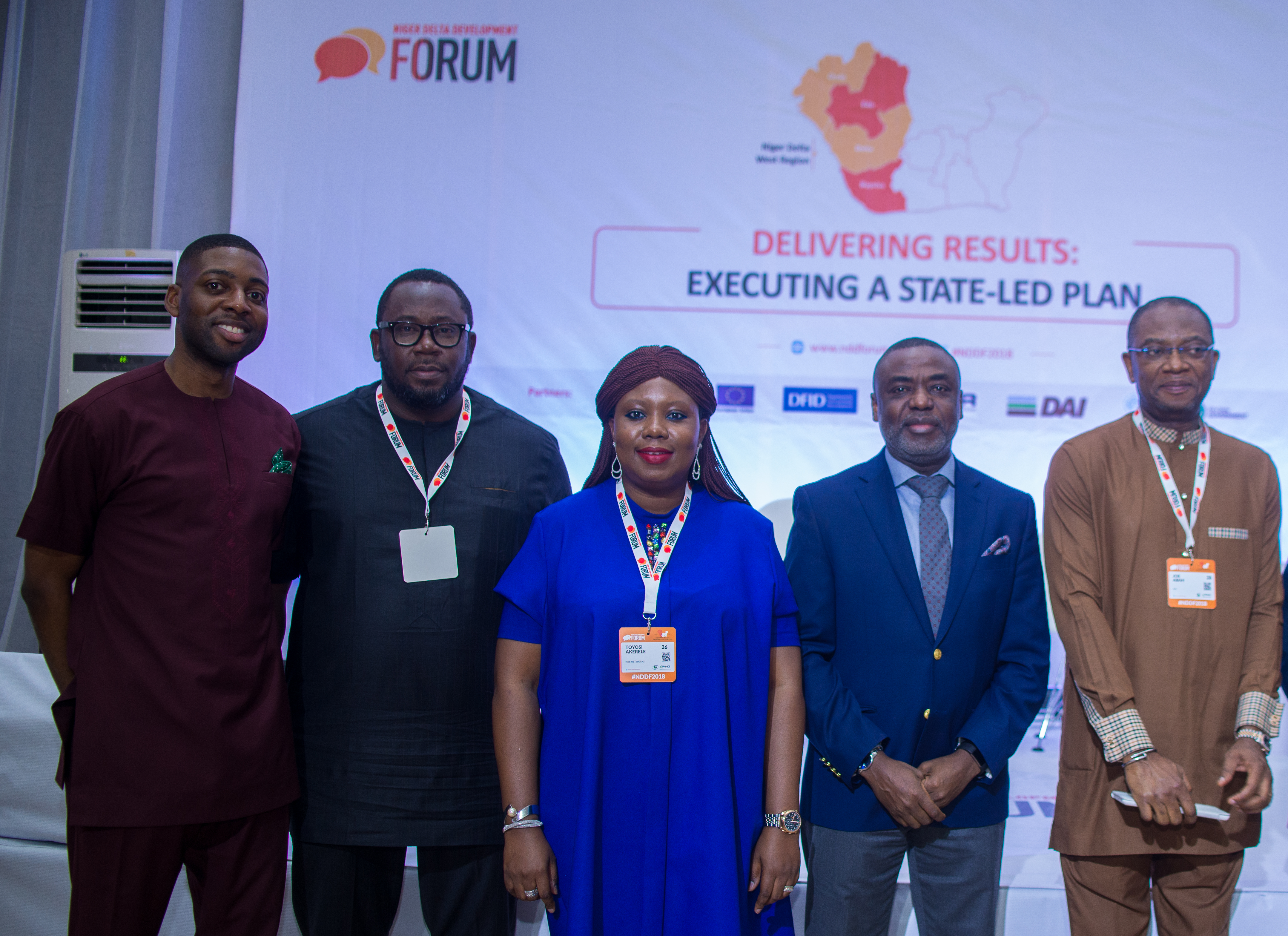The Niger Delta region, the unarguably layer of the Golden egg and economic heartbeat of the country, reeks of excruciating poverty, mindless environmental pollutions, incessant youths insurrections, debilitating unemployment, putrefying bad leadership and degrading available infrastructure.
These have, largely, subsisted because there appears to be no sustainable and deliberate long-term developmental plans by successive governments of states in the region and the often lack of willpower to execute them where there is any and the need to harmonize economic and developmental plans of the various governments with interventionist federal agencies, multinational organizations and non-governmental organizations to avoid duplications.
To assist the Niger Delta states to develop the best practices for sustaining and implementing a long-term strategic plan, the Foundation for Partnership Initiatives in the Niger Delta (PIND) and other development partners such as the Niger Delta Partnership Initiative (NDPI), the European Union, Development Alternatives Inc. (DAI) and Department for International Development (DFID), among others, held the seventh edition of the Niger Delta Development Forum (NDDF) 2018 with the theme “Delivering Results: Executing a State-Led Plan.”

NDDF 2018 forum invariably built, as it were, upon successful engagements in the 2017 edition which was themed: “The Future in Our Hands: A State-Led Framework for Planning & Development in the Niger Delta.” The 2017 edition had emphasized the need for long-term state-led development plans that address rising priority issues in the region for sustainable development, while recognizing the need for appropriate local context solutions.
At the 2018 roundtables held on November 27 at Edo Heritage Hotel, Benin and November 29 at Novotel Hotel, Port Harcourt, the Niger Delta states, clustered by location, included: Ondo, Edo, Delta and Bayelsa (Western Niger Delta); and Imo, Abia, and Akwa Ibom, Cross River and Rivers (Eastern Niger Delta), presented, through Power Point, their visions for their state-led planning processes in order to obtain feed-backs and support to help local actors arrive at informed decisions on the policy strategies, structures and actions suitable for application in their areas of planning. The team of presenters comprised top government functionaries from each state that participated.
The set-out objectives for the forum, as mapped out by NDDF, were to “track the progress of advancing the aims of the blueprint roadmaps developed by various states at NDDF 2017, identify concrete collaboration opportunities and touch points for Niger Delta stakeholders to harmonize intra-state and regional activities, select two states that would be supported in 2019 by development partners to create a long-term strategic plans as well as highlights best practices for sustaining and implementing a long-term plan at the sub-national level.”
The first roundtable session held in Benin produced Edo as the winner from the Western Niger Delta while the second session, which held in Port Harcourt, has Abia emerging as winner from the Eastern Niger Delta cluster. Teams from both states, like it was done to other states in the competition, were quizzed and put on the spots after their presentations by a panel of judges.
The judges, at the intriguing and highly-engaging sessions included DAI Nigeria Country Director, Joe Abah and Country Director of Water Aid, Chichi Aniagolu-Okoye. Other judges were Founder and Chief Executive Officer of Rise Networks, Toyosi Akerele; Lagos State Director of Economic Planning, Seun Akinsanya; Head of Innovation at BudgIT, Abel Akeni; and Head of the Nigerian Economic Summit Group’s Public Policy Intelligence and Reform Management Unit, Seun Ojo.
DAI Nigeria Country Director, Joe Abah, while making remarks on the performances of representatives from each state, averred that the states did well in covering their respective development needs and presenting plans on how they hoped to take development to the next level in their states.
Abah said the key qualities that determined how well the states performed included the workability of their proposals, likelihood of being able to resource plans, capacity to deliver results, the extent to which there is an implementation plan, and how they have been able to integrate a variety of stakeholders.
“I believe by going through the exercise itself, it will be of benefit to them; and so whether or not a state emerges tops at the end of the exercise, we would have given them something with which to do more work,” he enthused.
Country Director of Water Aid, Chichi Aniagolu-Okoye, lauded all the participants, noting that all the presentations were impressive and well-researched. She advised the participating states to discreetly prioritise their policies as well as pay attention to how the civil service and the civil society could assist in the execution of noted plans.
Speaking further, Aniagolu-Okoye said “It’s important that the states pay attention to their comparative advantage. I know that as a state government, there are so many competing interests. But ask yourself what are the three things that if you do, you will be able to catalyse development; for instance, electricity.
“A lot of the plans we heard were really quite external; they were not looking internally. We should ask: How do we restructure the civil service to be able to deliver on the plans because part of the reasons our plans have not worked so far is because the structure to deliver them are very weak.”
After the second session of the well-attended forum in Port Harcourt, the organizers came up with a communique, which contains observations, lessons and recommendations, yet to be made public.
NDDF, organized by the Foundation for Partnership Initiatives in the Niger Delta (PIND), started seven years ago and was conceived to influence development policies in the Niger Delta region. The annual event is supported by other organisations such as Market Development in the Niger Delta (MADE), the European Union (EU) and Faculty for Oil Sector Transformation (FOSTER).
Executive Director of PIND, Dr Dara Akala, thanked the foundation’s development partners and allies from the civil society sector and media for their support all these years. He explained that the 2018 edition of the forum focused on development planning as a way of consolidating on the resolutions reached in 2017.
“The purpose really is for us to harmonise and discuss key development issues, and what we are always trying to achieve is to influence government policies of the region, to foster partnerships through this forum, and to attract investment into the region,” he noted.
Dr Akala, however, debunked the narrative that planning was not the bane of Nigerian governments, but implementation.
“We do know that there is a school of thought that believes that we don’t need plans, that it is not plan that is our problem, it is execution. But we simply defer from that. We need execution, no doubt, but we also need very clear, comprehensive and coherent plans that will underpin development efforts at the sub-national level in Nigeria and, in particular, in the Niger Delta region.
“There are several kinds of agenda in the states, but what is often missing is that long-term strategic plan that will transcend the life of any administration. That is where we want to get the states to be,” Dr. Akala averred.
At the end of the two sessions in Benin and Port Harcourt, the panel of judges from the development partners chose Abia and Edo as Best Niger Delta States in Planning after defeating six other states in the region.
The winning states, the organizers reiterated, would be offered technical assistance and capacity support towards ensuring their aspirations were brought to reality. Dr Akala, at the sidelines, enjoined other states in the region to learn from Cross Rivers State government which it assisted to conceive and develop a development blueprint in collaboration with people of the state.
WATCH TOP VIDEOS FROM NIGERIAN TRIBUNE TV
- Relationship Hangout: Public vs Private Proposals – Which Truly Wins in Love?
- “No” Is a Complete Sentence: Why You Should Stop Feeling Guilty
- Relationship Hangout: Friendship Talk 2025 – How to Be a Good Friend & Big Questions on Friendship
- Police Overpower Armed Robbers in Ibadan After Fierce Struggle






